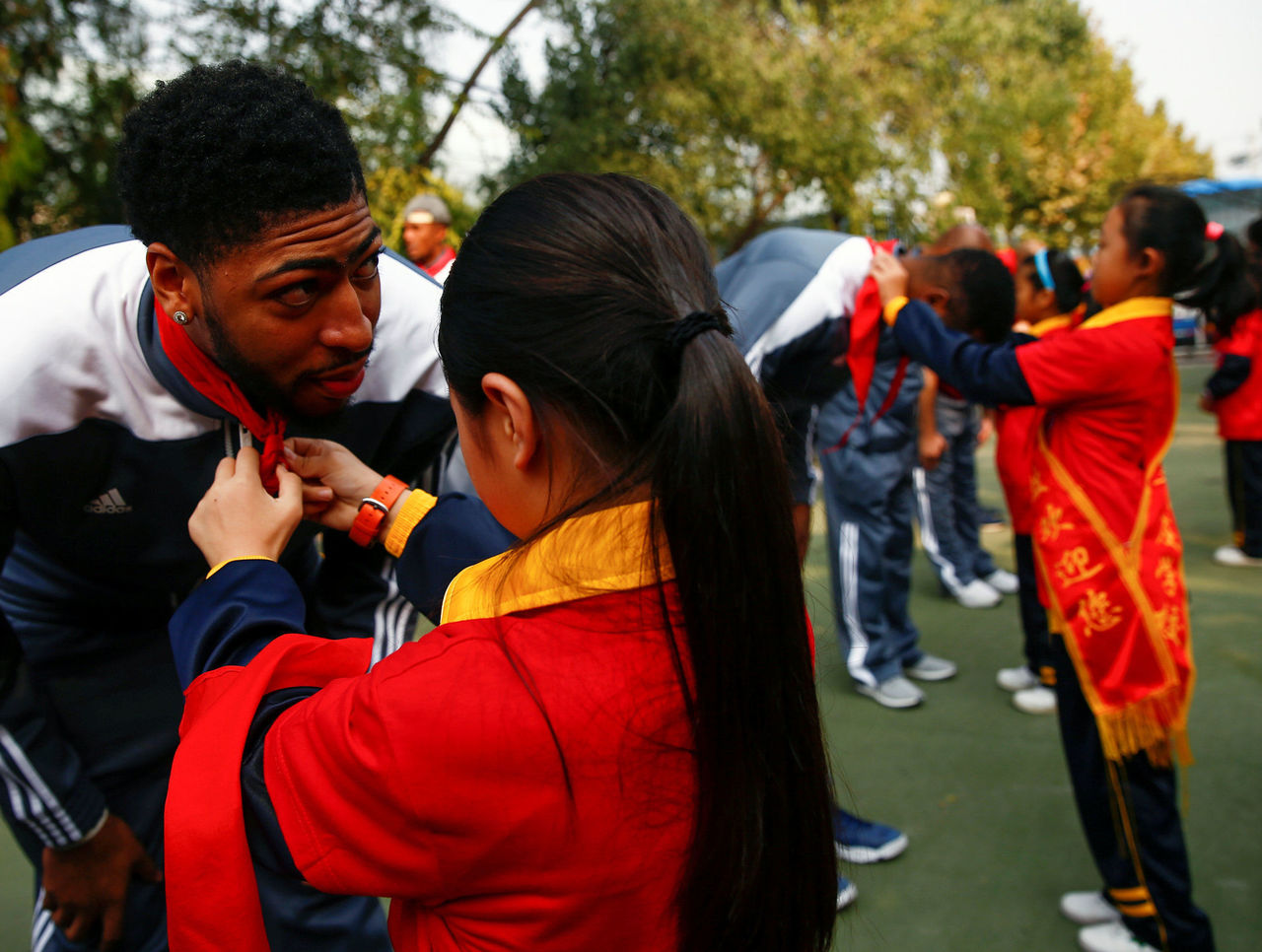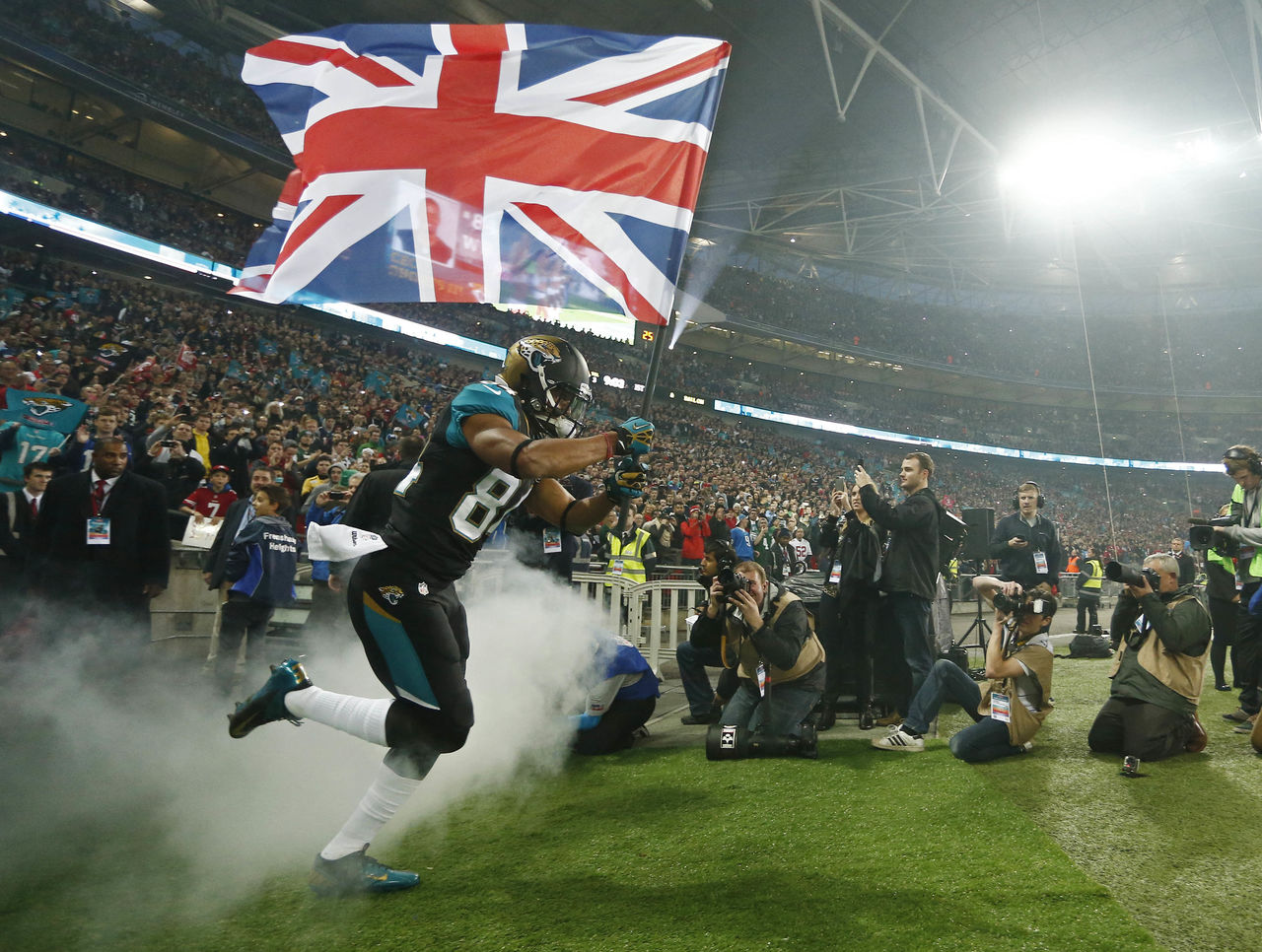3 things the NFL must do to prevent its own demise: Go global
The NFL is the most popular sports league in North America, but its long-term viability is under severe threat from several angles. It's not too late for the league to prevent its own demise, but there's no time to waste. This series will explore why the NFL will die if it doesn't:
- Fix player safety
- Solve streaming
- Go global
A common understanding of capitalism is that it requires infinite economic growth. The NFL has largely saturated North America, with seemingly all viable markets now filled following the relocation of the Rams, Chargers, and Raiders. The television audience has plateaued and could even be shrinking. The London experiment continues, but the NFL must look beyond Europe and compete on a global scale while untapped sports markets still exist.
The NFL must become a global sports leader
Soccer is our planet's dominant sport, and that isn't likely to change this century. Everything else is battling for second place.
At this moment, basketball appears to have a sizable head start. The NBA trails the NFL in popularity in North America, but leads in engagement with young fans on social media and has seen its popularly explode overseas in recent years.
Not only are there avid basketball fans and thriving domestic leagues in Europe and South America, but China has emerged as a key area of growth for the NBA.
Basketball has been played in China since missionaries brought the game to that part of the world more than a century ago. Today, an estimated 300 million Chinese people play basketball. It makes sense; after soccer, it's perhaps the easiest and most inexpensive team sport for amateurs to try.
Still, it wasn't until Yao Ming was selected first overall in the 2002 draft that the NBA exploded in popularity in the country. The league capitalized on this, sending wave after wave of its stars on promotional tours. Today, NBA players are household names among Chinese sports fans.

Two NBA players rank in the top 10 of ESPN's recent accounting of the world's 100 most famous athletes. No NFL player appears until Tom Brady at No. 21.
American football is no more than a niche sport outside the U.S. and Canada, played by a handful of enthusiasts and ex-pats. Complex rules and significant equipment costs make it unlikely it will ever approach the global participation numbers of soccer or basketball.
It will be an enormous uphill climb for the NFL to exceed or even match the NBA's global prominence, but it's something it must achieve in a world where markets and culture are merging and entertainment tastes are homogenizing.
To date, the NFL has focused its expansion plan on Europe, first with the failed developmental league NFL Europe and now with multiple regular-season games played annually in London. It appears inevitable the league will eventually place a franchise in England's capital.
But sending the Jaguars to London once a year won't make the NFL a global powerhouse. Putting a franchise in London likely won't achieve that goal, either. The NFL sees dollar signs in Europe, but building a global expansion plan around where the money is today, and not where it will be in 10, 50, or 100 years, won't secure the NFL's future.

A broader approach focused on the global TV audience might be the right one. The NBA rose to prominence in China in part because it struck a deal in the '90s allowing fans to watch games on TV for free. Now, the NBA has a deal with Tencent, China's largest tech company, to let fans stream games on their phones.
The future of sports probably isn't in stadiums, it's on TV, phones, and perhaps in virtual reality. And the NFL's product is ideal for those devices, with its unmatched feats of strength, skill, and willpower, and its frequent breaks for slow-motion replays and analysis.
American football might never be played by kids around the world, but there's no reason it can't become their favorite form of entertainment. The NFL should borrow the NBA's model and make its games free and easy to watch on TV and mobile devices outside North America.
Beyond that, the NFL should subsidize the price of video games like "Madden," particularly in emerging markets, so new fans can "play" football and learn the sport, even if they'll never truly strap on the pads.
At the same time, the NFL should do everything it can to support foreign athletes who want to run, catch, and tackle for real. It should alter its roster rules to make it easier for teams to sign and develop players from abroad. When the Yao Ming of football emerges, the NFL must be prepared to fully capitalize on his appeal.
The U.S. has long exported the world's favorite movies and TV shows. There's no reason it can't provide its next favorite sport - and there's no reason that sport can't be football.
(Photos courtesy: Action Images)